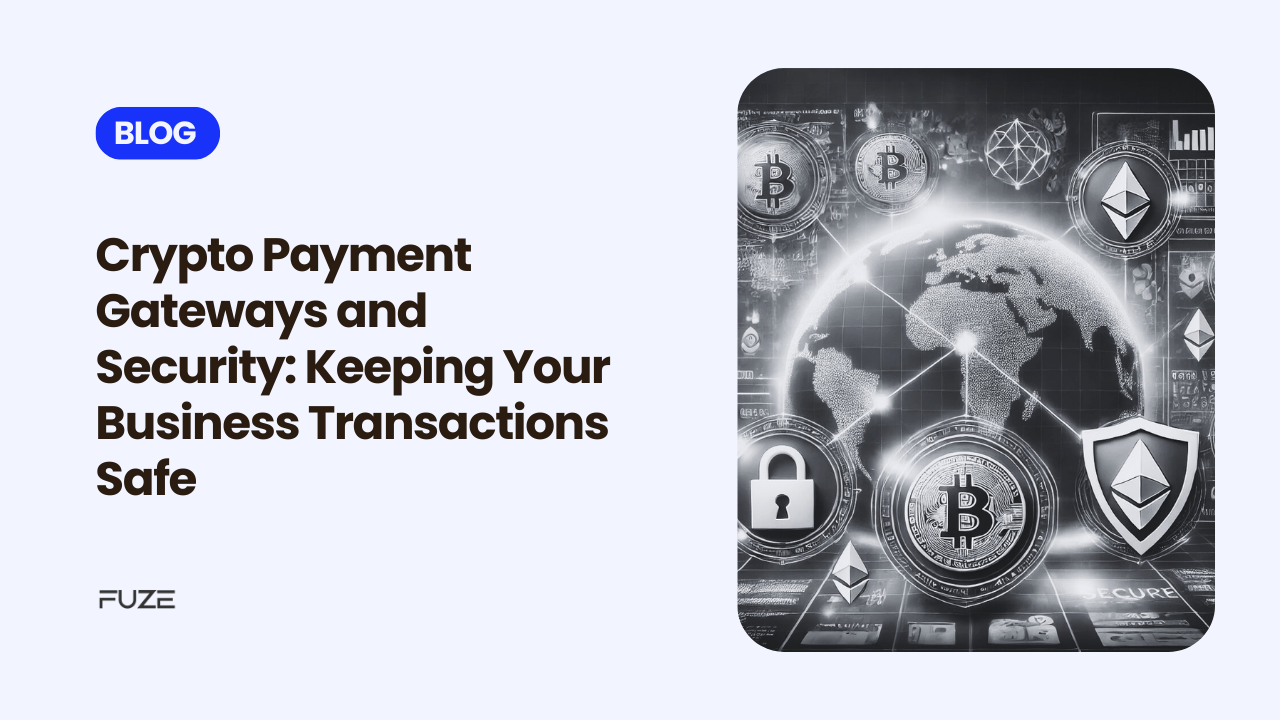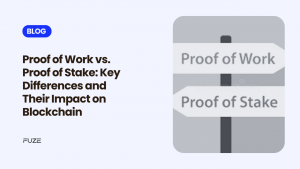From reducing transaction costs to offering faster cross-border payments, cryptocurrencies present numerous benefits. However, this emerging payment method also introduces unique security challenges. As the digital economy continues to evolve, securing crypto transactions becomes paramount. With the rise of crypto payment gateways, businesses can tap into the benefits of blockchain technology, but it’s crucial to navigate potential security risks effectively.
This blog aims to explore the evolving security landscape surrounding crypto payment gateways, the challenges businesses face, and strategies to ensure safe transactions for merchants and consumers alike.
Understanding the Importance of Crypto Payment Gateways
A crypto payment gateway acts as a bridge between cryptocurrency and traditional fiat currencies, allowing businesses to accept digital currencies for products and services. While cryptocurrencies like Bitcoin (BTC), Ethereum (ETH), and stablecoins like USDC have experienced exponential growth, the payment solutions surrounding these digital currencies must meet high security standards to ensure trust and integrity in the transaction process.
Despite the enormous potential of crypto payments, businesses must be mindful of the growing concerns regarding fraud, data breaches, and cyberattacks. In this blog, we will discuss the crucial security features that crypto payment gateways must possess to protect both businesses and customers from potential risks.
The Rise of Crypto Payment Gateways and the Need for Robust Security
The adoption of crypto payments is growing rapidly. The advantages include lower transaction fees, faster settlement times, and greater accessibility to global markets. Unlike traditional payment systems that are regulated and backed by financial institutions, crypto payments are run on decentralized blockchain networks, which presents unique security challenges.
Data breaches, fraud, and money laundering are just a few of the issues faced by crypto payment gateways. As businesses begin their journey with these payment solutions, securing transactions becomes the prime requirement for maintaining customer confidence and compliance with international regulations.
Key Security Challenges in Crypto Payment Gateways
- Lack of Regulation: One of the main challenges surrounding crypto payment gateways is the inconsistent regulatory framework globally. The lack of regulation regarding crypto payment gateways is one of the significant issues around them. Although countries like the U.S., UAE, and EU are at the forefront of regulating cryptocurrencies, regulations are still evolving and in some regions, even unclear. This regulatory uncertainty increases the chances of fraud and lowers consumer confidence about crypto payments.
- Transaction Irreversibility: Unlike credit card payments, crypto transactions are irreversible. Once funds are transferred, they cannot be retrieved. This makes crypto more attractive to criminals who may exploit this feature for fraudulent activities. With no central authority to reverse transactions, businesses must rely on preventative measures to secure their funds and identify fraud early.
- Hacking and Phishing Attacks: Crypto exchange and payment gateway hacks are quite frequent. Furthermore, phishing attacks pose a threat, as hackers are using such attacks to extract private keys from users and allow unauthorized access to digital wallets.
- Internal Security Threats: Most crypto payment gateways use third-party service providers or centralised exchanges to process transactions. With such reliance, additional weaknesses arise, especially when the provider doesn’t emphasize a proper, secure practice. Data breach, unauthorized access, and fraudulent activities may result from either poor internal management or fragile security measures.
Key Security Features of Crypto Payment Gateways
Despite the challenges, several advanced security measures can be used to protect businesses and consumers making crypto payments. Now, let’s take a look at the key features any crypto payment gateway should offer to ensure safe transactions.
Decentralized Blockchain Technology
The backbone of any crypto payment system is blockchain. Blockchain’s decentralized nature provides the advantage of transparency and security such that each transaction is recorded on an immutable ledger. Since the data is publicly available and decentralized, blockchain minimizes the risk of fraudulent transactions. Moreover, using blockchain prevents central entities from manipulating transaction records, offering businesses and customers enhanced trust in the transaction process.
End-to-End Encryption
Crypto payment gateways further secure payment information by using advanced encryption technologies. This ensures that data transmitted between the customer’s wallet and the merchant’s system is private and protected. The core part of this is public and private key cryptography, wherein only the wallet holder can authorize the payment by using his private key.
Cold Storage Solutions
A highly recommended security measure for crypto businesses is the use of cold storage solutions for storing large amounts of cryptocurrencies. Cold storage means keeping assets offline, significantly reducing the risk of hacking. Crypto payment gateways that prioritize cold storage protect the majority of funds in an environment that is not connected to the internet, thus mitigating potential cyber threats.
Multi-Signature Authentication (Multi-Sig)
Multi-signature authentication is yet another layer of security that businesses dealing with huge volumes of crypto transactions have. With multi-sig, a transaction is authorized by multiple keys. This implies that no single individual can move funds without the consent of others in the organization, making it much harder for hackers to access funds in case of an internal breach or individual account compromise.
Two-Factor Authentication (2FA)
Another way of securing your crypto payment system is enabling 2FA, which only allows people to log in by showing proper authority over that account.
By requiring a second form of identification (such as a one-time password sent to a mobile device or email), 2FA helps prevent unauthorized logins, adding an extra layer of security to your crypto payment systems.
Anti-Money Laundering and Know Your Customer Compliance
These are very essential regulations for businesses processing crypto payments, as governments around the world are strengthening the rules. AML checks ensure that businesses are not being used for money laundering, and KYC verifies the identity of customers. By following these regulations, crypto payment gateways help reduce fraudulent activities and build consumer trust.
How Businesses Can Protect Themselves
For businesses adopting crypto payment systems, there are several proactive steps to ensure the safety and security of their transactions:
- Choose a Reputable Payment Gateway
Research and select a payment gateway provider with a proven track record of security. Look for partners who are transparent about their security measures, who follow regulatory guidelines, and offer key security features like encryption, cold storage, and multi-sig authentication. - Employee Training and Awareness
The human element is often the weakest link in security. By training employees to spot potential phishing attempts and understand the basic principles of crypto security, businesses can reduce the chances of internal breaches and fraud. - Regular Security Audits
Constantly monitor and audit your crypto payment system for vulnerabilities. A good practice is to perform regular security audits and penetration tests to ensure that your systems are resilient to potential attacks. - Implement Transaction Monitoring
Many crypto payment gateways offer tools to monitor transactions in real-time. Set up alerts to notify you of suspicious activity, such as large transfers or transactions to unrecognized addresses.
Conclusion
While cryptocurrency payments offer businesses a chance to streamline their operations and expand globally, the security risks associated with these payment systems cannot be ignored. A thorough understanding of the potential risks, combined with best-in-class security features such as blockchain technology, encryption, multi-sig, and cold storage, can significantly reduce the exposure to fraud and theft.
The appropriate choice of crypto payment gateway determines both the security of transactions on your end and protection of customer data. In such an increasingly evolving regulatory landscape, more businesses adopt the usage of cryptocurrencies, it’s even more important for a company to be watchful and invest in proper security infrastructure and stay ahead of this curve to survive the economy of the digital age.
Fuze ensures secure and compliant transactions with its easy-to-use, robust crypto payment gateway. Built with a compliance-first approach, it meets global regulatory standards while offering advanced security measures like blockchain transparency, encryption, and fraud detection. Businesses benefit from streamlined operations and enhanced customer trust, knowing their transactions and data are well-protected. With an intuitive platform designed for efficiency, Fuze empowers businesses to expand globally, navigate complex regulatory landscapes, and embrace the digital economy with confidence.
Disclaimer: Virtual assets carry significant risks, including high volatility and potential loss of your entire investment. They are not backed by governmental protections, and recourse may be limited in case of loss. Always assess your risk tolerance, fully understand the risks, and seek independent financial advice if needed before investing.
Frequently Asked Questions
1. Are transactions processed through crypto payment gateways anonymous?
While cryptocurrency transactions offer privacy, they are not entirely anonymous. Most gateways comply with KYC/AML requirements, linking transactions to verified identities to ensure regulatory compliance.
2. What are the risks of using an unsecured crypto payment gateway?
Risks include potential loss of funds due to hacking, exposure to fraudulent transactions, and non-compliance penalties. An unsecured gateway can also compromise customer trust and brand reputation.
3. Can businesses use crypto payment gateways without technical expertise?
Yes, many gateways, including Fuze, are designed with user-friendly interfaces that simplify integration and usage. They provide APIs and plugins to streamline setup, making it accessible for businesses of all sizes.
4. What role does blockchain technology play in the security of crypto payment gateways?
Blockchain ensures transparency and immutability of transactions, reducing the risk of fraud and tampering. Its decentralized nature makes it resistant to single-point failures.
5. How can businesses enhance security beyond using a trusted crypto payment gateway?
Businesses can adopt additional measures like securing private keys, implementing 2FA for wallet access, regularly updating software, and educating employees on cybersecurity best practices.







